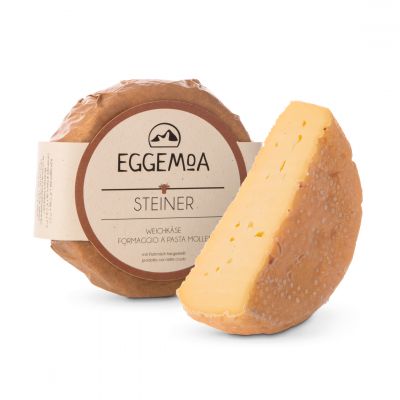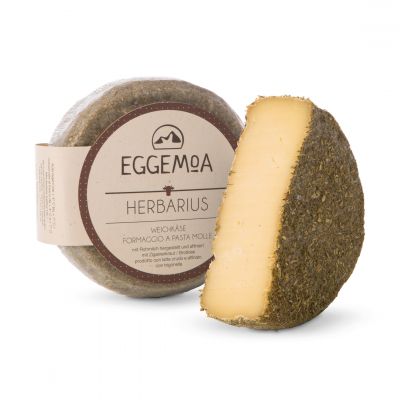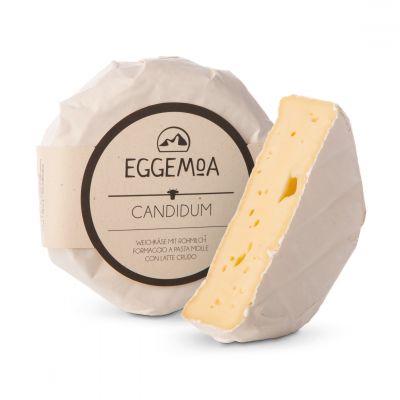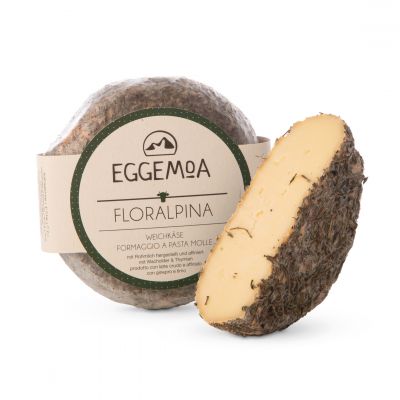Our first journey with the sales network after the easing of the Covid lockdown was to the Aurina Valley, where we met Michael Steiner to rediscover the Eggemoa cheeses
⏱ 4 MINUTES READING
The perfume of hay, the clear mountain air, the desire and enthusiasm to spend time together once more: these are the three things that will forever spring to my mind whenever I look back at this journey. Eggemoa, in Selva dei Molini (BZ); a different journey, because it was the first group one after the lifting of the Covid lockdown. A group brimming with energy, including our agents and internal staff members: no doubt you’ll recognise a face or two when you look at the photos.
But let’s set aside the description of our group and focus on the real star, Michael Steiner (on the cover), dairyman and co-owner, together with his parents, of Maso Eggemoa.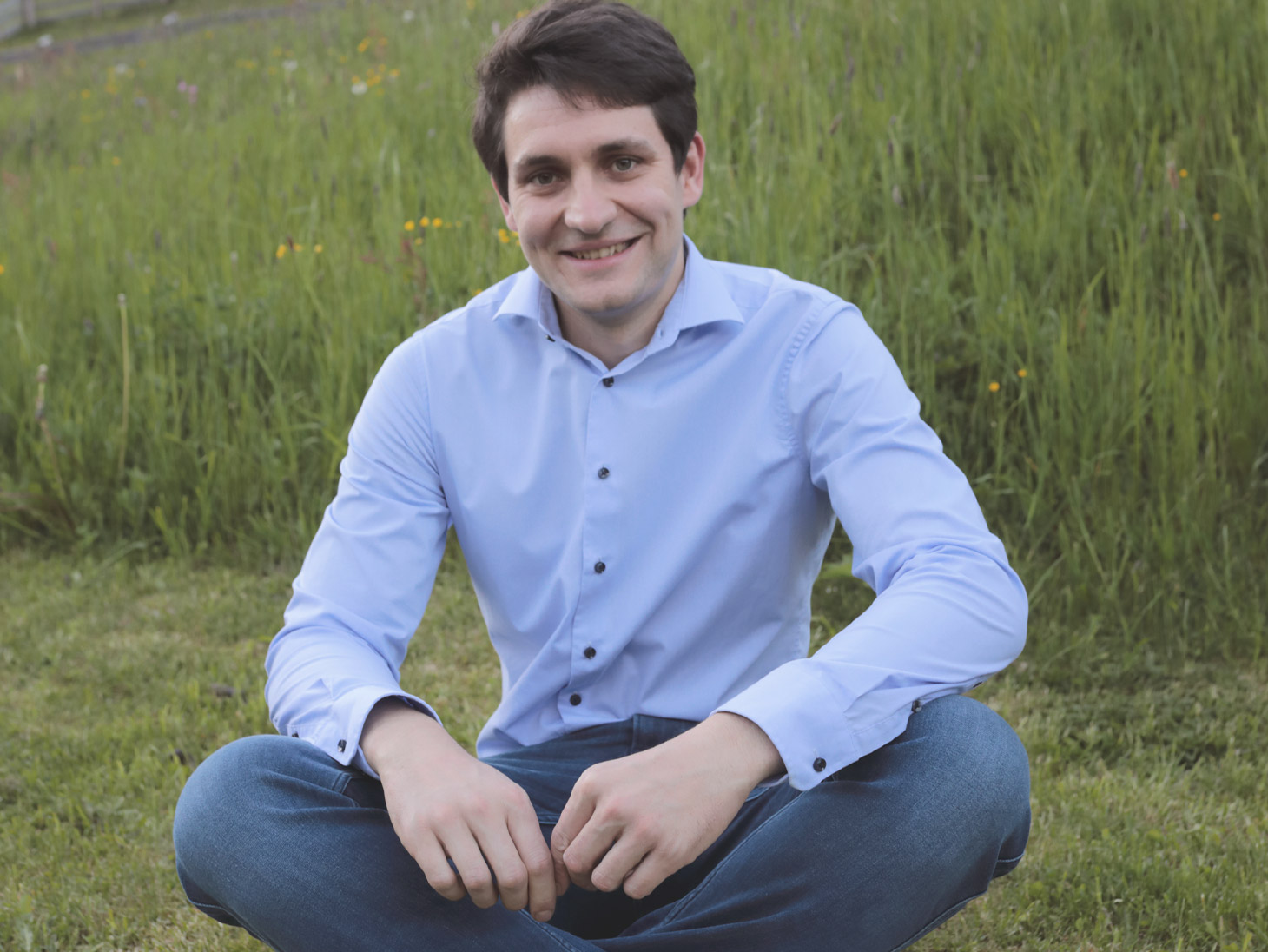
We first began working with the Steiner family from the last October, in occasion of Sapori, and I must admit that it has been an extremely satisfying experience. Their raw milk cheeses have received acclaim both in virtue of their qualitative and organoleptic properties as well as their practical size and creative affinage.
Our entire sales team really wanted to meet the producer and gain first-hand experience of the balance between the maso and nature, cows and pastures, cheeses and flavours, experience and creativity. What for? To acknowledge the close bond between the producer, the product and the land and to understand how this makes all the difference, more than ever before, on the gastronomy market.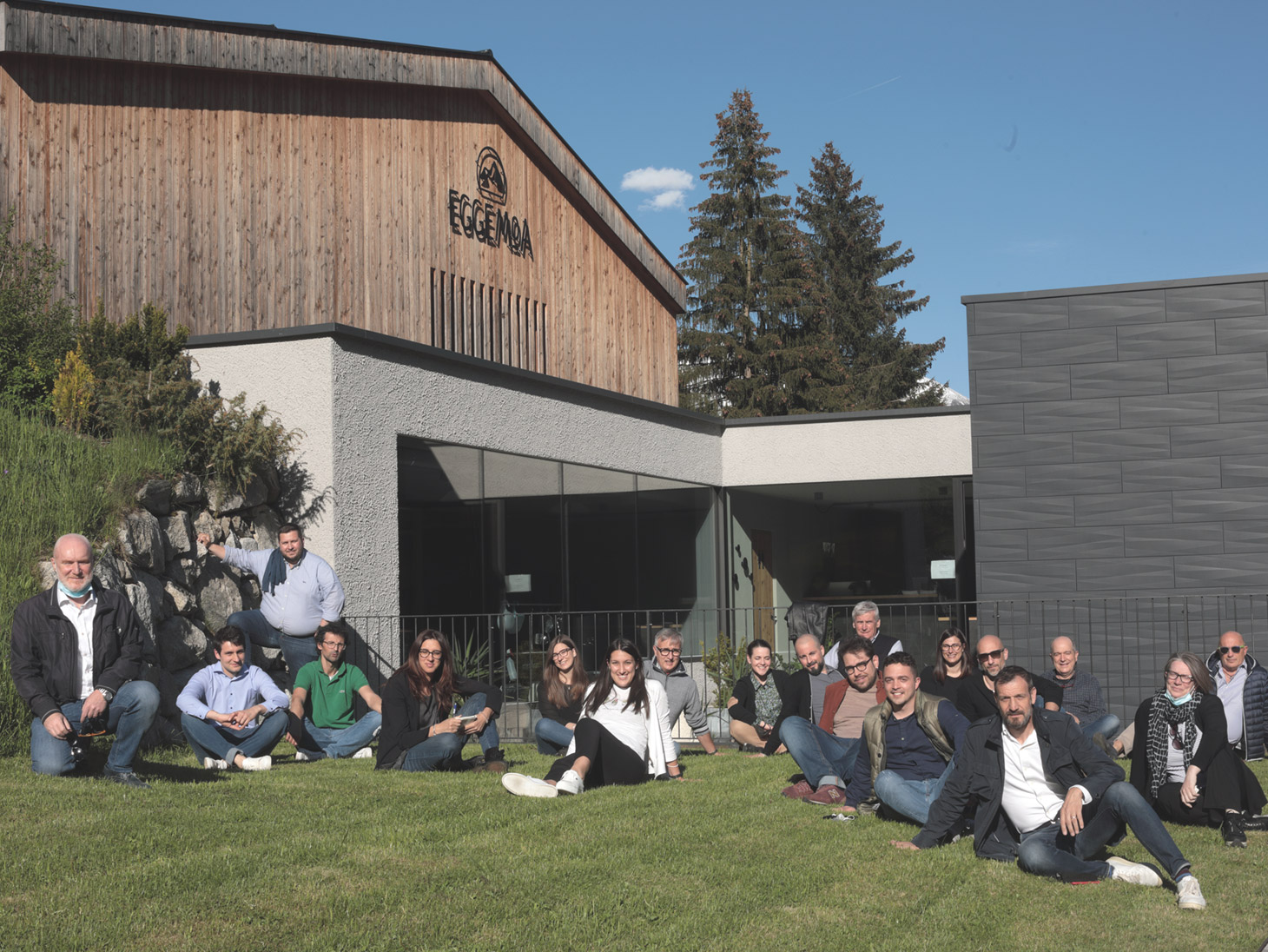
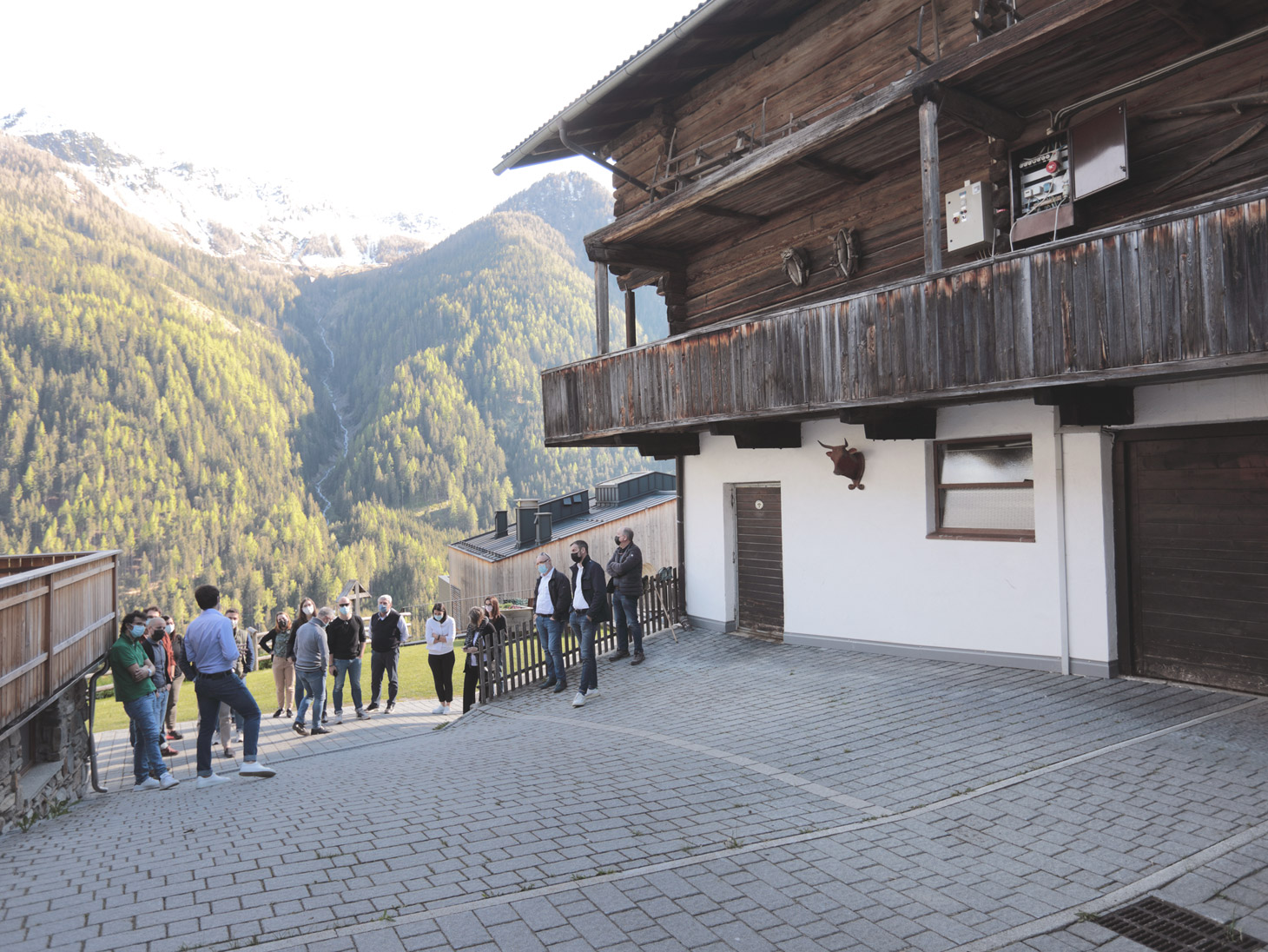
Eggemoa is a maso (typical farmstead of south tyrol), a centuries-old physical and social facility, which has freed itself from the shackles of “this is the way it’s always been done”, through methods, creativity and originality. Michael tells us of the numerous “battles” with his father Gebhard, to change the recipes of cheeses and align them with the needs of a market beyond the local area. One glance at the cheeses and it’s clear who emerged victorious.
We arrived late in the afternoon, on the first sunny day of a rainy May. Michael welcomes us after guiding us along the last impervious stretch of road over the phone. It is worth remembering that Selva dei Molini is a hamlet nestled at an altitude of 1300 metres above sea level. After chatting for a little while, we follow him on a visit to the stables and the hay barn, in the historic part of the maso, behind the new part, where the dairy and tasting hall are now located.
The historic part was once home to the old dairy, small and, in the words of Michael, “no longer suitable”. The farmstead system is compact, a perfect triad in response to the traditional requirement of pasture - stable - dairy. It is also family-sized, with 12 hectares of pasture nestled on the edge of woodland (extremely steep, the grass is cut by hand), 15 Bruna breed cows and a dairy that processes around 300-400 kg of milk per day.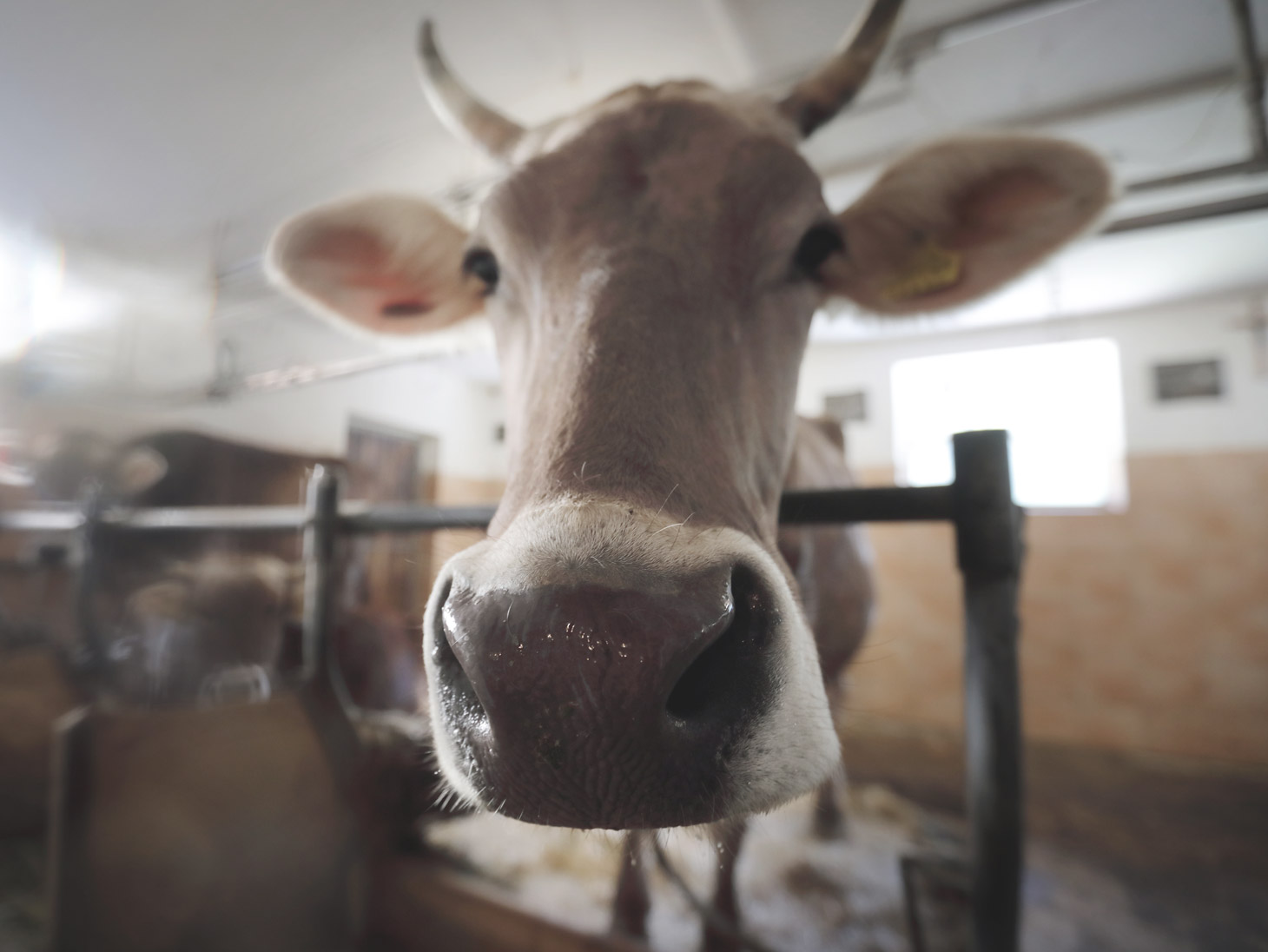
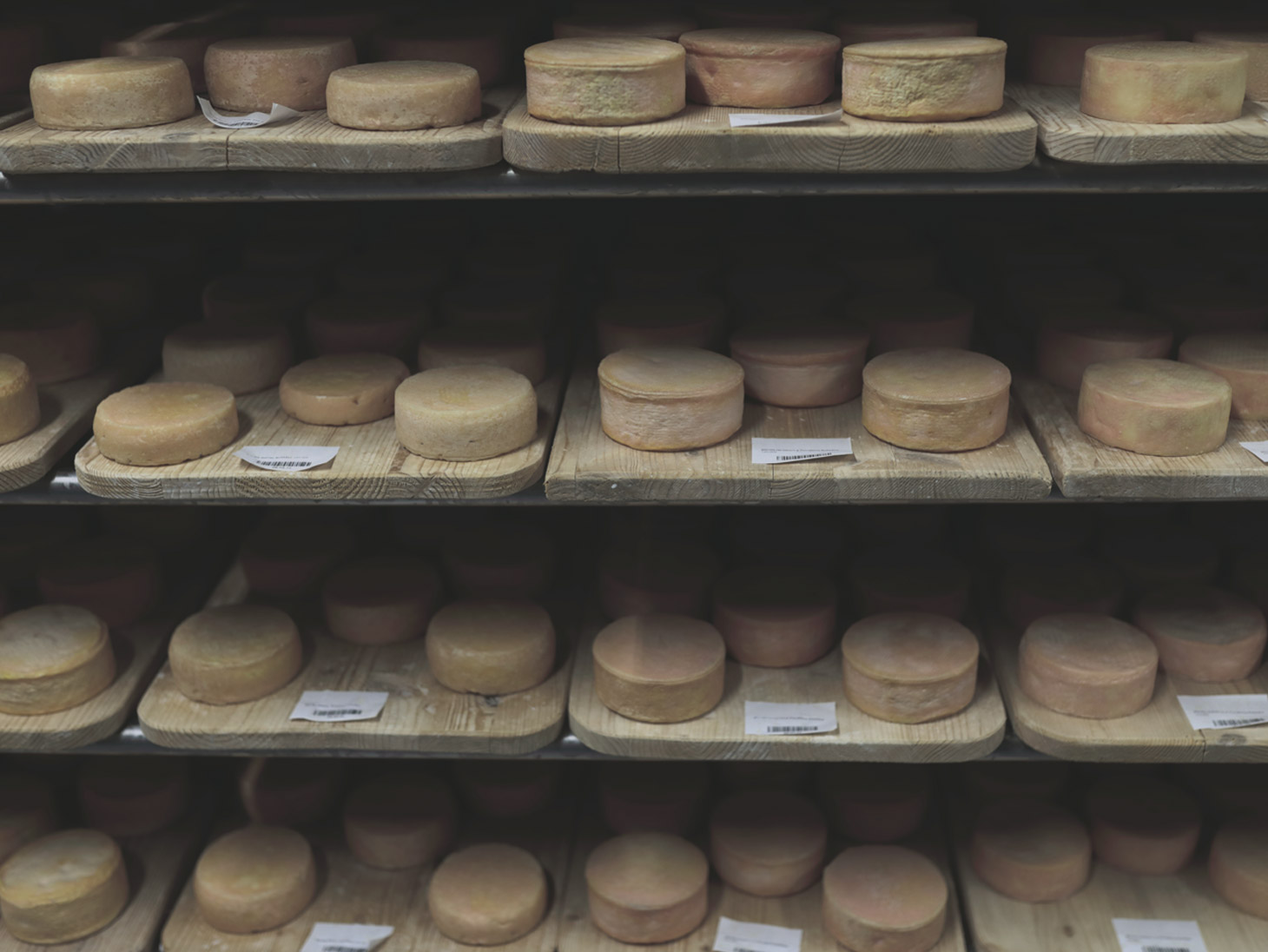
Self-production is the golden rule at this maso, which satisfies almost all its livestock and dairy requirements with its very own resources. Some would call it a short supply chain.
The stables are on the ground floor and according to Michael, are probably next in line for renovation, as he’d like to make more room for his livestock; unlike most, his cows are not dehorned, once more to increase the well-being of these animals.
The cows are let out to pasture in alternating and non-regular periods, on dry fields only. Steep slopes are not safe for livestock and unfortunately when a cow is hurt not much can be done to save it. Therefore caution and balance are key words when living in the mountains. Michael’s father Gebhard looks after the animals and milks them, but he also cuts the grass and tends to the fields.
The hay barn is located on the upper floor, a rather suggestive and strategic place. A corridor runs down the centre and there are several holes on either side which lead directly onto the stables and which are filled with different cuts of hay, of increasing fibrousness as the summer advances. Let’s go into more detail. In the late spring and summer it is important for cows to graze out in the fields, but this time of the year is also crucial for making hay to feed livestock over the winter.
Therefore a pasture and hay field rotation system is implemented, with the aim of cutting hay at least three times during the season. Of course the weather plays a crucial part in all of this. Each cut produces a very different and increasingly fibrous hay. The first cut is the richest: it is tender and easily “ruminable” for cows, resulting in a milk rich in protein. The second and third cuts are not so rich but still high in excellent fibres and consequently the milk has a higher fat content.
The hay barn is an open space and is also used as a drying facility, as the weather doesn’t always make it possible for hay to be dried out in the sun. A window opens onto the wonderful panoramic view of the valley, a truly regenerating sight.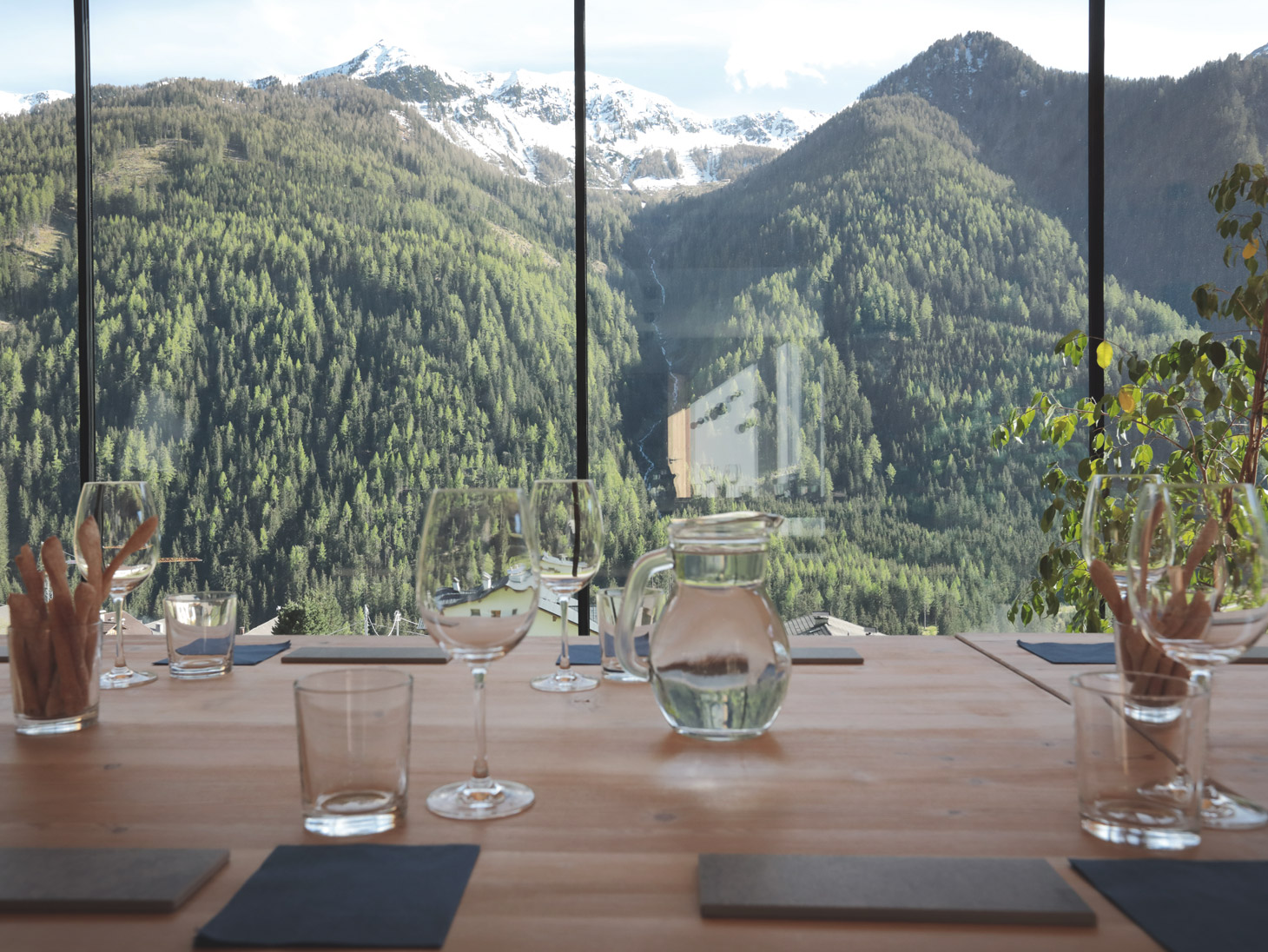
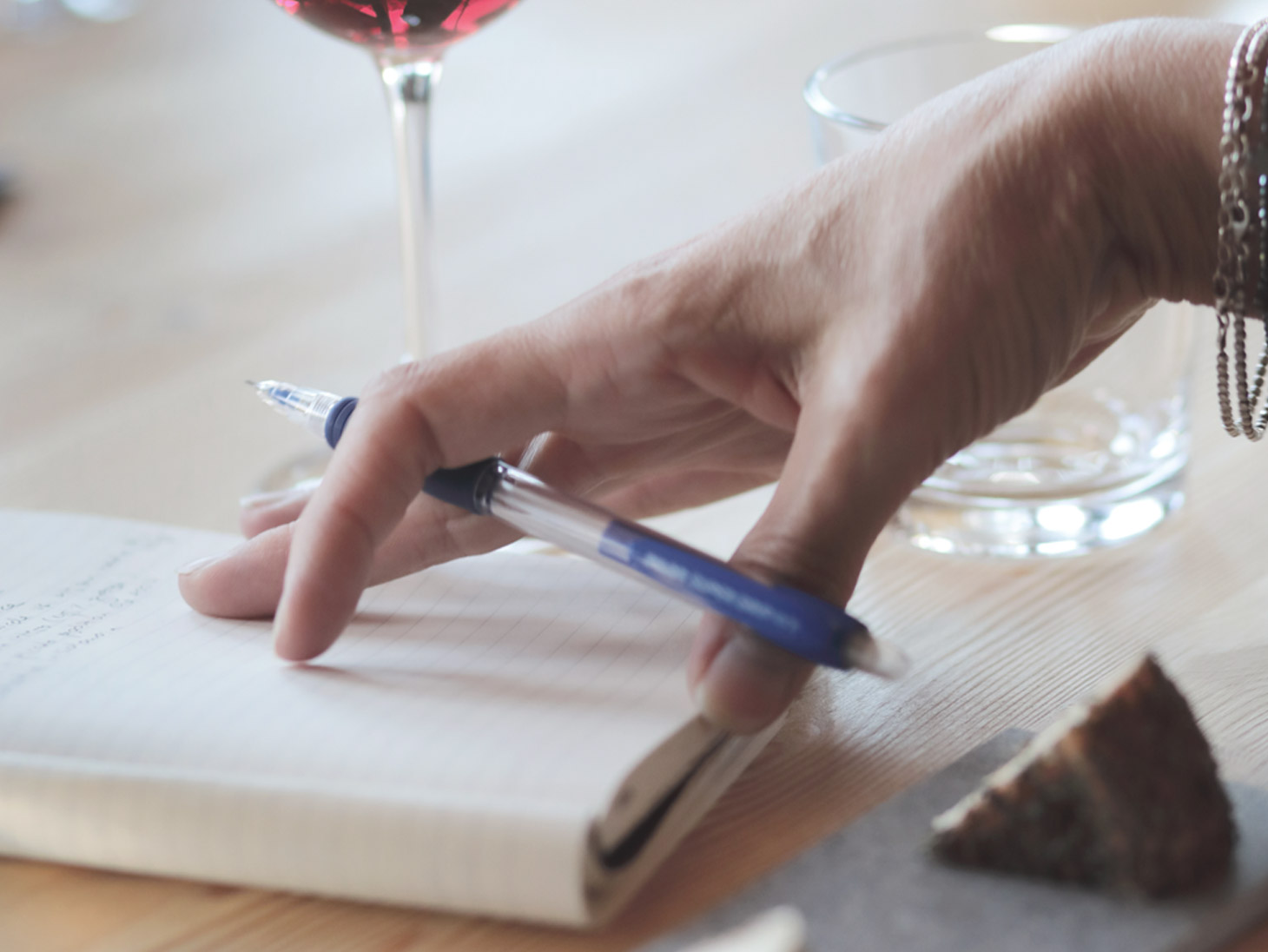
We continue the visit by splitting the group in two to avoid excessive crowding. The first group visits the mini dairy and ageing cells, where Eggemoa cheese is left to age on small wooden boards. The second group lazes on the lawn, with a glass of wine kindly offered by mother Irmgard.
Cheeses are always made in small batches, so that the right amount of attention and manual skill can go into the process. The dairy is Michael’s kingdom: here he puts his studies into practice, along with his experience gained both abroad and since returning home in 2017.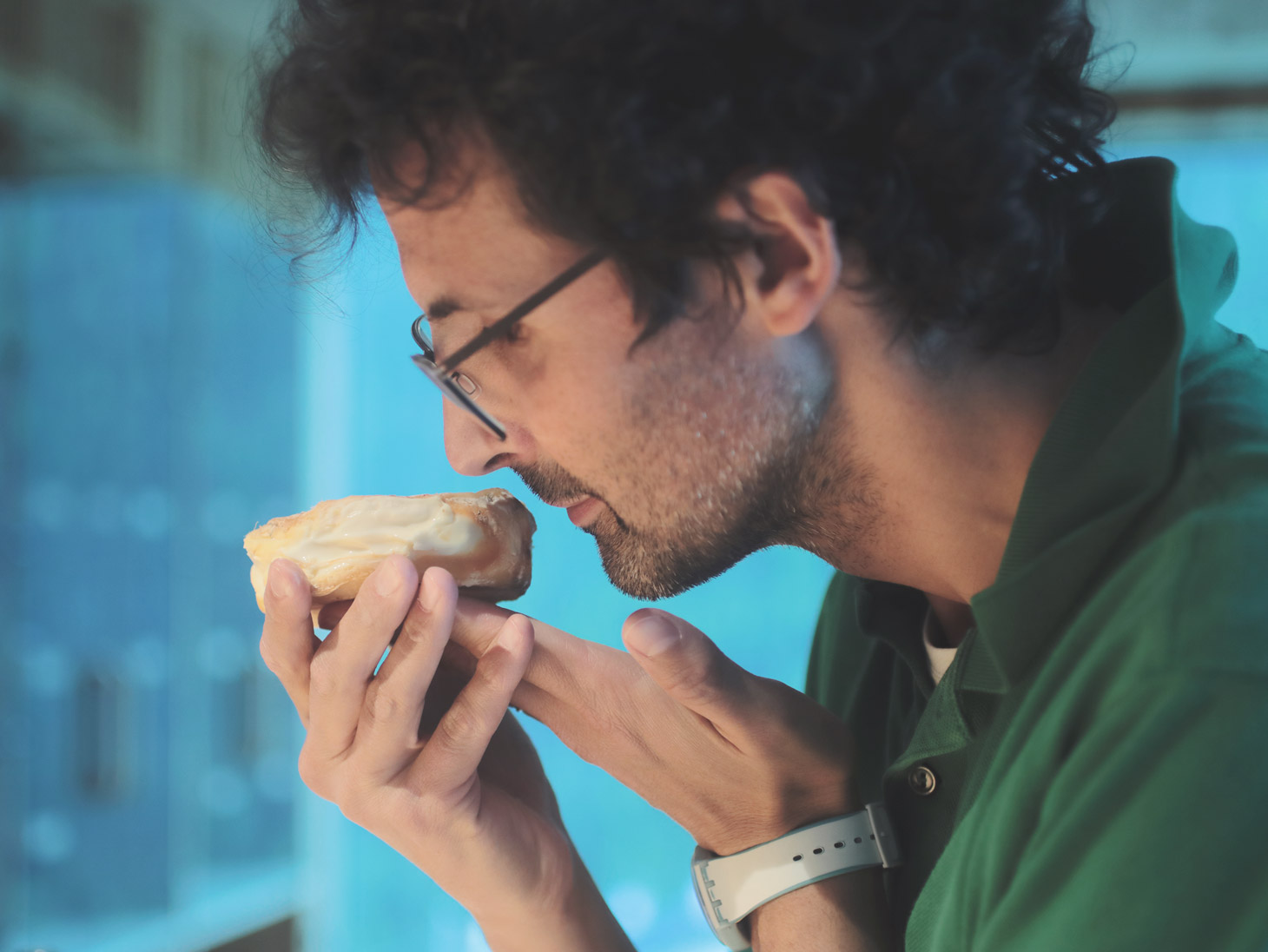
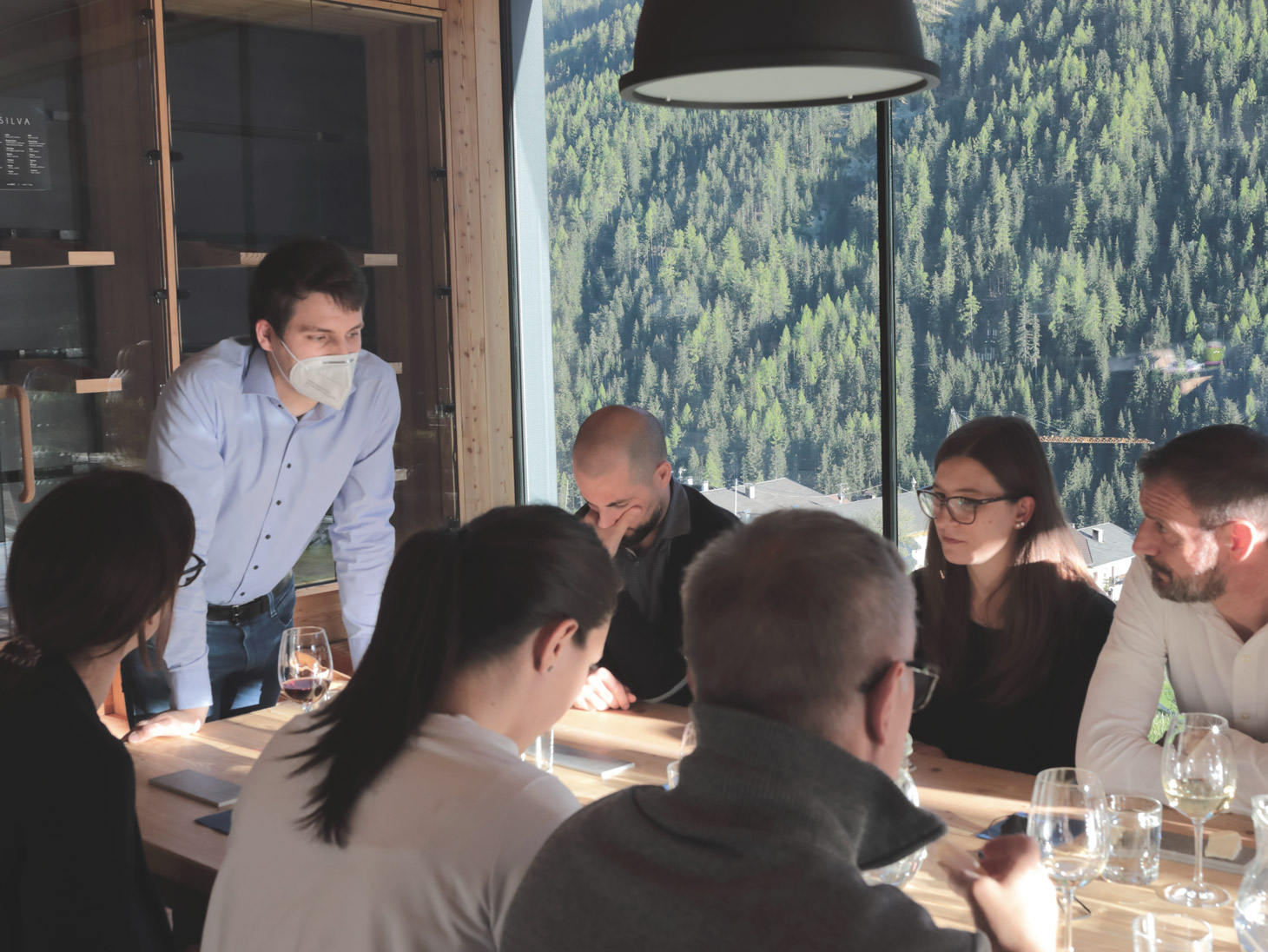
In the end we taste the cheeses in the recently constructed and splendid panoramic tasting hall. The experience is a crescendo of consistencies, different degrees of sweetness, a variety of fragrances, all bound together by a single virtue: fineness. I won’t mention individual cheeses because you are already familiar with them.
Actually, I will make one exception: Silva, a seasonal raw milk cheese wrapped in fir bark. Buttery, mellow, resinous and elegant are just some words that describe its qualities. The wait is nearly over, in October it will be available once more.
It truly is wonderful to be able to visit even the most distant producers, to resume travelling and once more sit together around a table for some cheese tasting.
Alessandro De Conto
Commercial Manager




